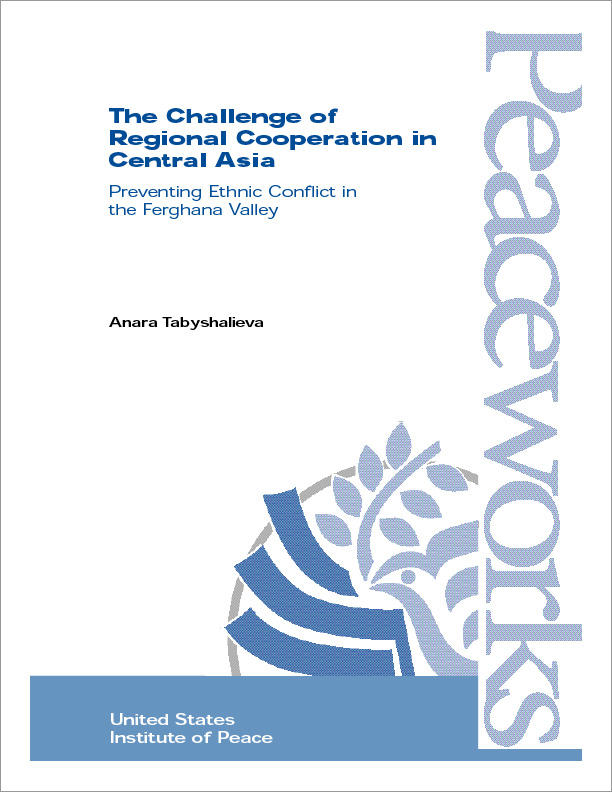The Challenge of Regional Cooperation in Central Asia: Preventing Ethnic Conflict in the Ferghana Valley
Peaceworks 28
This report looks at social fragmentation currently taking place in Central Asia and its possible repercussions for the future of regional cooperation.

This report looks at social fragmentation currently taking place in Central Asia and its possible repercussions for the future of regional cooperation. The first substantive section begins with a brief overview of the Soviet legacy in Central Asia and its contribution to the region's ethnic and social divisions, and then examines the current state of ethnic and religious tensions in the independent Central Asian states following the Soviet Union's demise; this section also looks at the lack of a unified communications space in the region and how it perpetuates Central Asia's social divisions. Central Asian political leaders' attempts to unify their newly independent states through appeals to each state's distinct interpretation of its role in the region's history and culture is the focus of the next section of this study, which reveals that such nation-building efforts have served only to contribute to Central Asia's further polarization and fragmentation. This section is followed by a brief case study of conflict in the Ferghana Valley and its causes. The penultimate section of this study addresses the prospects for regional cooperation among the Central Asian states to mitigate such tensions, with a special emphasis on sustainable development initiatives. The study concludes with recommendations for U.S. policymakers.
Anara Tabyshalieva conducted the initial research for this study during her 1996–97 Jennings Randolph fellowship at the United States Institute of Peace. Currently she is director of the Institute for Regional Studies and a lecturer at Kyrgyz-Slavonic University. In 1995 she was the recipient of a grant from the John D. and Catherine T. MacArthur Foundation in support of her research on "The Women's Question in Central Asia: Historical Roots of Contemporary Contradictions," and a grant from HIVOS (Holland) for researching a group project entitled "Kyrgyzstan: Factors of Destabilization and Stabilization of Ethno-Religious Peace."




